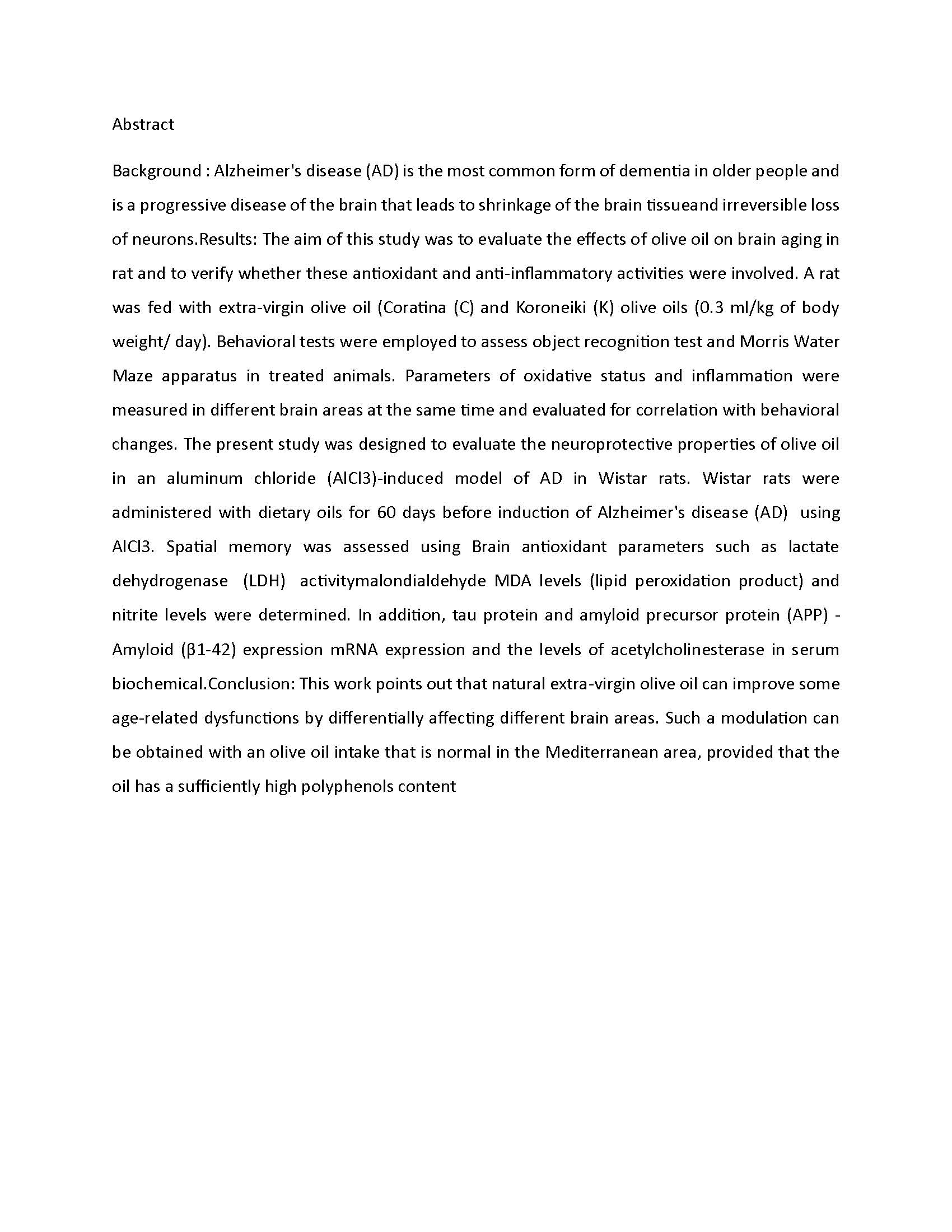Background: Alzheimer’s disease (AD) is the most common form of dementia in older people and is a progressive disease of the brain that leads to shrinkage of the brain tissueand irreversible loss of neurons.
Results: The aim of this study was to evaluate the effects of olive oil on brain aging in rat and to verify whether these antioxidant and anti-inflammatory activities were involved. A rat was fed with extra-virgin olive oil (Coratina (C) and Koroneiki (K) olive oils (0.3 ml/kg of body weight/ day). Behavioral tests were employed to assess object recognition test and Morris Water Maze apparatus in treated animals. Parameters of oxidative status and inflammation were measured in different brain areas at the same time and evaluated for correlation with behavioral changes. The present study was designed to evaluate the neuroprotective properties of olive oil in an aluminum chloride (AlCl3)-induced model of AD in Wistar rats. Wistar rats were administered with dietary oils for 60 days before induction of Alzheimer’s disease (AD) using AlCl3. Spatial memory was assessed using Brain antioxidant parameters such as lactate dehydrogenase (LDH) activitymalondialdehyde MDA levels (lipid peroxidation product) and nitrite levels were determined. In addition, tau protein and amyloid precursor protein (APP) – Amyloid (β1-42) expression mRNA expression and the levels of acetylcholinesterase in serum biochemical.
Conclusion: This work points out that natural extra-virgin olive oil can improve some age-related dysfunctions by differentially affecting different brain areas. Such a modulation can be obtained with an olive oil intake that is normal in the Mediterranean area, provided that the oil has a sufficiently high polyphenols content.
